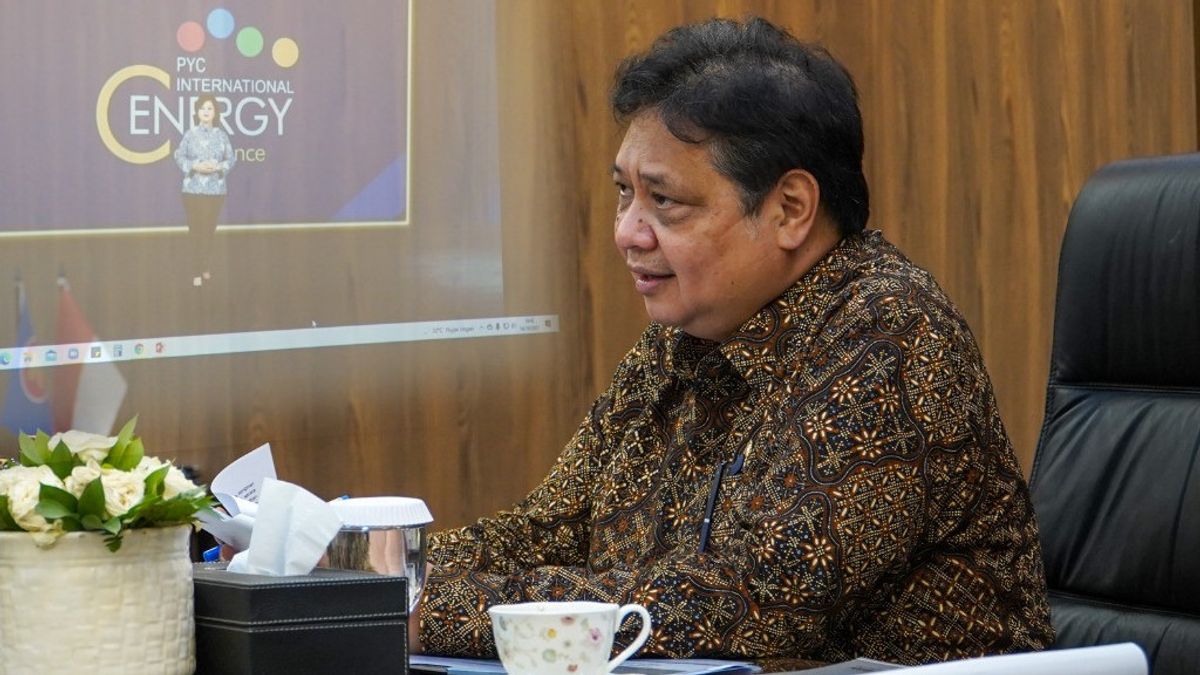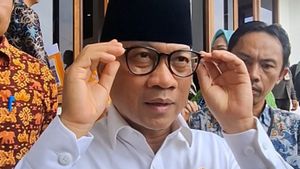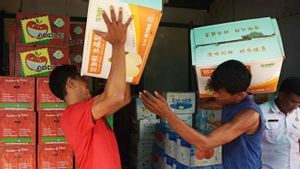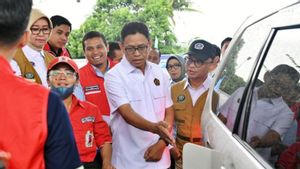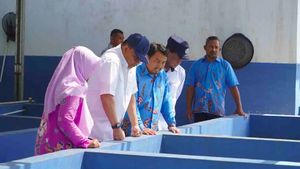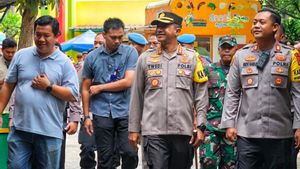JAKARTA - Coordinating Minister for Economic Affairs Airlangga Hartarto stressed the importance of all parties using renewable energy now and in the future for the sake of preserving our earth. This was stated at the Purnomo Yusgiantoro Center (PYC) International Energy Conference virtually in Jakarta, Wednesday, October 6.
Energy security is an important factor in the sustainability of a country's life. Energy is not only an important production factor for economic activity and growth, but also a strategic commodity that can threaten economic activity in times of crisis, especially when prices are out of control due to limited supply.
The current condition in the world energy market is skyrocketing gas and coal prices, followed by an increase in oil prices. This led to an energy crisis in Europe, particularly the UK, as well as in China.
The energy crisis in the UK is caused by the "perfect storm" namely very hot summer conditions (and is likely to be followed by a very cold winter towards the end of this year in Europe), and limited supply from Russia (as one of the main suppliers for Europe). , as well as investment in gas storage infrastructure which is constrained. In the European context, increasingly stringent CO2 emission regulations have also led to very high carbon prices.

The current economic recovery in the Bamboo Curtain country has led to high energy demand, and has seen coal prices hit historic highs exceeding US$230 per tonne in early October 2021. With limited gas supplies in Europe, much of the supply was destined for the Asian market. shifted to Europe, resulting in prices in Asia, represented by spot LNG prices rising very high reaching more than US$25 per mmbtu.
“This condition of increasing uncertainty has colored the world's energy sector which has an impact on all countries, including Indonesia. To that end, the Government continues to strive to improve the investment climate in order to increase investment competitiveness in the energy sector through various incentives. This will increase state revenues that can be used as national development capital," he said.
Currently the world is entering an energy transition period since the Paris Agreement on climate change to keep global warming from rising more than 2 or even 1.5 degrees Celsius, which was followed up by statements from various countries that would be in a net position. -zero emissions (NZE) in 2050.

Indonesia's economic recovery policy, continued Coordinating Minister Airlangga Hartarto, is based on a strong desire to protect vulnerable groups from being drastically affected by the COVID-19 pandemic. "We have increased the budget to protect this group, including MSMEs. All of this, of course, requires a fairly large budget, in the midst of declining tax revenues due to restrictions on economic activity," he said.
However, the Government does not forget its long-term aspirations, for example in dealing with the problem of global warming due to climate change. This will have an impact on the obligation of all countries to make an energy transition. Energy consumption in the future needs to pay attention to carbon emissions, so that the Government's policy is directed at providing incentives for the use of clean energy such as renewable energy. Then, at the same time also make disincentive policies, even stop or moratorium on the use of fossil energy, especially those with relatively higher carbon emissions.
Future development is directed at maintaining a balance between economic growth, emission reduction targets, and the carrying capacity of natural resources. The government will make policies that accommodate the economic value of carbon, the implementation of which will be carried out in stages.
The imposition of a carbon tax will not be carried out immediately, but will be carried out in stages through studies from various aspects, both economic, social, and political. This discussion and study will involve various groups, including the private sector.
The multidimensional challenges faced this time need to be addressed carefully by involving all components of the nation. “The government cannot act alone. The private sector, academia and think-tank organizations, and civil society organizations or non-governmental organizations, need to work together to support the Government in producing long-term oriented policies, but not forgetting to overcome the current short-term challenges," concluded Coordinating Minister Airlangga Hartarto.
The English, Chinese, Japanese, Arabic, and French versions are automatically generated by the AI. So there may still be inaccuracies in translating, please always see Indonesian as our main language. (system supported by DigitalSiber.id)
